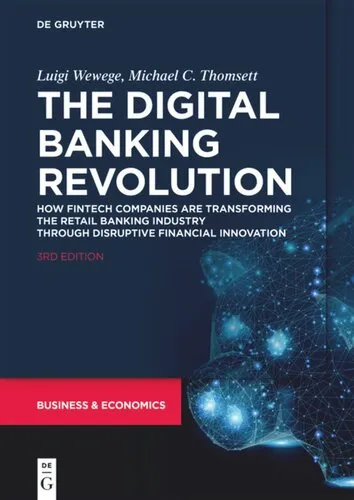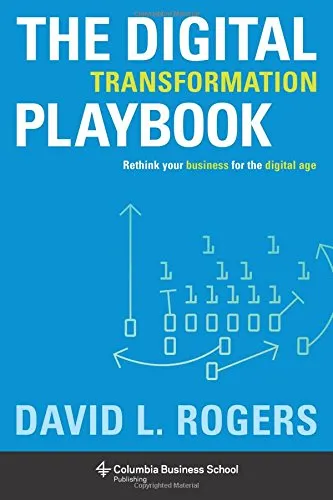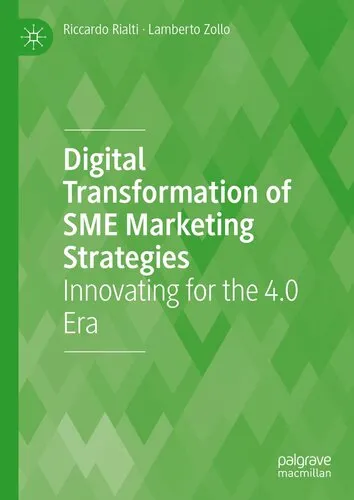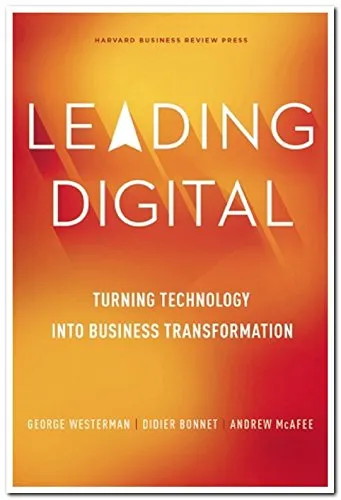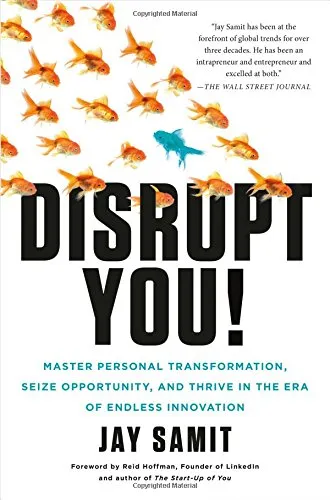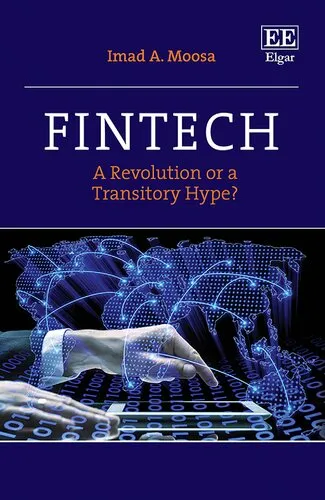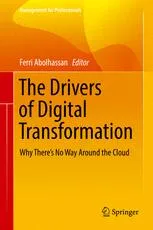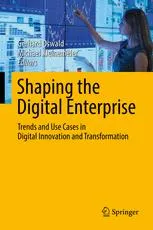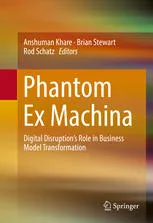The Digital Banking Revolution: How Fintech Companies are Transforming the Retail Banking Industry Through Disruptive Financial Innovation
4.5
Reviews from our users

You Can Ask your questions from this book's AI after Login
Each download or ask from book AI costs 2 points. To earn more free points, please visit the Points Guide Page and complete some valuable actions.کتاب های مرتبط:
Introduction to "The Digital Banking Revolution"
"The Digital Banking Revolution: How Fintech Companies are Transforming the Retail Banking Industry Through Disruptive Financial Innovation" is a groundbreaking book that explores the rapidly evolving landscape of financial technology (fintech) and its profound impact on the traditional retail banking sector. Co-authored by Luigi Wewege and Michael C. Thomsett, this book delves deep into how innovation, digital transformation, and disruptive technologies are fundamentally reshaping the ways consumers interact with financial services.
The retail banking industry is undergoing unprecedented change. Over the past decade, fintech companies have catalyzed a movement that challenges traditional banking institutions to reimagine their practices, adapt to technological advancements, and meet evolving customer expectations. This revolution is not just about the adoption of digital tools but signifies a comprehensive shift in customer-centric services, leveraging Artificial Intelligence (AI), blockchain, open banking, and personalized financial solutions.
Written in a concise yet accessible language, this book offers a thorough explanation of key concepts through real-world examples and trends. Professionals, students, and anyone interested in understanding the future of banking and finance will find "The Digital Banking Revolution" an invaluable guide to navigating this exciting time of transformation.
Detailed Summary of the Book
At its core, the book provides a comprehensive overview of how fintech companies have disrupted and redefined the traditional banking model. Readers are introduced to an in-depth analysis of:
- The historical evolution of retail banking and the emergence of fintech companies as key players in driving industry disruption.
- How technology such as blockchain, AI, and machine learning is enabling the creation of smarter financial products while reducing costs and enhancing security.
- Case studies of major fintech companies that have reshaped customer expectations for speed, simplicity, and transparency in banking transactions.
- The role of government regulation and compliance in shaping fintech innovation, with discussions on data privacy, security, and open banking frameworks.
- Strategic advice for banks and fintech entrepreneurs on collaboration, competition, and driving sustainable innovation.
The authors also explore critical challenges faced by traditional banks, particularly in adopting technology at the pace required to stay relevant. They provide a roadmap for how legacy institutions can upgrade their infrastructure, embrace digitalization, and foster a tech-savvy culture to effectively compete with fintech startups.
Key Takeaways
Here are the most important insights readers can gain from "The Digital Banking Revolution":
- Fintech companies thrive because they prioritize seamless customer experience while solving pain points that banks often overlook.
- Traditional banks are at a crossroads—they must adapt to digital transformation or risk becoming obsolete.
- Digital innovations like peer-to-peer lending, robo-advisors, and cryptocurrency are democratizing financial services for previously underserved populations.
- Collaboration between banks and fintech firms often leads to the best outcomes, blending the stability of established institutions with the agility of startups.
- The future of retail banking will center around hyper-personalization, predictive analytics, and customer empowerment through data.
Famous Quotes from the Book
"The financial services sector is no stranger to change, yet the current wave of disruption is unlike anything we’ve seen before. Fintech isn’t just competing with banks—it’s redefining everything we know about retail banking."
"Customers don’t just want efficiency and lower fees; they want banking to be invisible, seamless, and always connected to their lives."
"The greatest challenge for traditional banks isn’t technology itself—it’s the culture shift required to embrace digital transformation."
Why This Book Matters
"The Digital Banking Revolution" is more than just a guide to understanding fintech; it is a call to action for financial institutions, entrepreneurs, and leaders to embrace the changes shaping the industry. Here's why this book matters:
The retail banking sector touches billions of lives worldwide, making its evolution integral to the global economy. By highlighting the opportunities and threats brought by fintech innovation, this book empowers organizations to rethink their services, policies, and technologies. It also fosters a greater understanding of how modern banking can uphold security, profitability, and customer loyalty in a new era.
Individuals outside of the financial industry will also benefit from this book, as it sheds light on the increasing accessibility and inclusiveness of banking services enabled by digital transformation. This is especially relevant for underserved communities that now have more opportunities than ever to participate in the global financial ecosystem.
Ultimately, the insights provided by Luigi Wewege and Michael C. Thomsett make "The Digital Banking Revolution" an essential read for shaping strategies in business, technology, and finance.
Free Direct Download
You Can Download this book after Login
Accessing books through legal platforms and public libraries not only supports the rights of authors and publishers but also contributes to the sustainability of reading culture. Before downloading, please take a moment to consider these options.
Find this book on other platforms:
WorldCat helps you find books in libraries worldwide.
See ratings, reviews, and discussions on Goodreads.
Find and buy rare or used books on AbeBooks.
1304
بازدید4.5
امتیاز0
نظر98%
رضایتReviews:
4.5
Based on 0 users review
Questions & Answers
Ask questions about this book or help others by answering
No questions yet. Be the first to ask!
